Is Babbel Any Good for Language Learners? I Speak 4 Languages Fluently, Here’s What I Think [Babbel Review]
What is Babbel?
Babbel uses a gamified system along with short lessons to introduce users to their target language and take them to intermediate level.
- what it’s for:
- Vocabulary, phrases, pronunciation, listening skills, spelling, simple grammar and conjugation
- languages:
- English, Spanish (Latin America), Spanish (Spain), French, German, Italian, Russian, Portuguese (Brazil), Dutch, Polish, Swedish, Norwegian, Danish, Indonesian, Turkish
- level:
- Beginner - Intermediate
+ PROS
- Ability to choose learning level
- Regular reminders to review
- Focuses on real world phrases as used by native speakers
- CONS
- No distinctive features
- No speaking opportunities
- No easy takeaways
What did I think of Babbel, as someone who speaks four languages fluently? It helped me improve my pronunciation and understanding of grammar. While it has some flaws, the good outweighs the bad. I recommend it as a good use of time for the language learners it targets.
Are you ready for a Babbel review? This is what I have in store for you today: an honest, extensive review of one of the most popular language learning resources out there.
Before we continue, I think it’s only fair of me to give an honest disclaimer. I am fluent in French, Italian, Spanish, and English and have not learned one of these four languages with a language course. Or by taking language classes.
Erm, Alice, you’ll say, What does this have to do with this Babbel review?
Good question.
The thing is… When I try out a language course, I compare it to the top language learning methods.
I wrote a post on what I consider to be the best language learning method and I stand by my point: full immersion is the only way to fluency. So I base my evaluation of courses on how close they come to full immersion.
This is the second time that I’m reviewing a course for Fluent in 3 Months. The first time was when I got the chance to experience Olly Richard’s storytelling method (spoiler: I loved it!).
I had a lot of fun writing the Italian Uncovered review and I wondered how a more popular program such as a Babbel would compare.
With a one-month trial period, and as part of my current mission to learn a fifth language, I explored Babbel’s Portuguese courses.
Let me walk you through the experience with shiny screenshots and an inside perspective.
To make sure you get everything you need, I’ve included answers to questions that language learners often ask about Babbel.
Babbel Review: Index
In this Babbel review, I will tell you:
- What Babbel is
- What Babbel does well
- The restrictions of learning with Babbel
- Which languages Babbel teaches
- How Babbel does compared to Rosetta Stone
- Babbel’s costs and value
- How to make the most of it
Without further ado, here’s why I think Babbel is a four-star language learning resource. It has some flaws, but as I mentioned earlier, the good outweighs the bad. I recommend it as a good use of time for the language learners it targets.
Let’s Start at the Beginning: What Is Babbel?
Babbel is both a language e-learning platform and a language learning app. It offers courses at newcomer, beginner I, beginner II, pre-intermediate, and intermediate levels. It doesn’t currently go to advanced levels.
Babbel is constantly reviewed and updated by a team of more than 150 language experts who work to ensure that each course remains effective and accurate.
All of its audio learning content is produced by native speakers to guarantee that students have contact with the real language.
It uses a blended approach to learning. While using Babbel’s Portuguese course, I have practiced:
- With flashcards
- By repeating words out loud
- By typing dictated words or phrases
- By reconstructing words or phrases I’d previously learnt with the flashcards
- By filling in the blanks in dialogues
- By listening to dialogues
- By reading short grammatical or conjugation lessons
- By reviewing learnt words or expressions until I was confident using them
Babbel Languages: How Many Languages Does Babbel Teach?
I used Babbel to learn Portuguese from English, but you could use it to learn any of the following languages:
- Danish
- Dutch
- English (from French, Italian, German, Swedish, Spanish, Polish, or Portuguese)
- French
- German
- Indonesian
- Italian
- Norwegian
- Polish
- Portuguese (Brazil)
- Russian
- Spanish (Latin America)
- Spanish (Spain)
- Swedish
- Turkish
That’s a total of 14 languages, or 15 if you count the two types of Spanish separately.
What Babbel Does Well
This is the part where I justify the four stars.
Babbel Allows You to Choose Your Learning Level
Some people compare Babbel to Duolingo.
While they are similar in their teaching techniques (flashcards, fill in the blanks), Duolingo makes you climb levels. Babbel gives you the opportunity to jump from level to level without having to “unlock” them.
Once you have a subscription, you can choose to do any course at any time.
Babbel Teaches You to Speak Like a Native Speaker
As I told you before, Babbel makes sure that all its audio content is recorded by native speakers in the target language. This makes for a flawless accent and a clear pronunciation which students can get used to as soon as the first class.
It’s true that the words and speech are slowed down and well-articulated, which might not be the case in a foreign country. However, this gives learners the chance to have an easy start and get used to the accent. There’s always time for speeding the pace up later.
Babbel Encourages You to Regularly Review
Repetition, repetition, repetition. All successful people recognize the importance of this quote.
An effective language learning journey has two crucial characteristics: constant practice and a tolerance for mistakes.
Benny wrote a post on how important mistakes are on your way to fluency, and I think you should check it out.
But mistakes don’t happen on their own. They happen when you practice. And the more you practice, the fewer mistakes you will make.
Babbel’s programme pushes you to review at least ten words or phrases every day. To make sure that your review is as effective as possible, Babbel lets you choose the review technique you prefer.
You can choose between flashcard review, “type in” review, speaking review, and identifying review.
Babbel Teaches You Colloquial Language First, and Gets a Big Yes From Me
This particular point is really important because it ties to full immersion.
Often, Babbel makes you learn the colloquial version of a phrase first. It makes sure to also give you the correct and less familiar alternative, but the emphasis is on the phrase as you would hear it in the streets.
This might seem strange to anyone who’s learnt languages with the usual school method. Wouldn’t learning the colloquial language confuse you? And then you wouldn’t be able to speak correctly?
As someone who learnt two languages out of need rather than just passion, let me tell you why teaching colloquial language first is great.
When you travel to a foreign country, your goal is not to get an academic book published in that language. You want to be able to understand what the natives say. And you can’t do that unless you know the colloquial expressions.
So thank you Babbel for taking care of that.
The Part of Babbel that Didn’t Convince Me
This is the part where I justify the missing star.
Babbel Lacks Its Own ‘Stand-Out’ Feature
Unlike my much loved Uncovered courses, Babbel doesn’t have a particular feature that makes it stand out.
It isn’t based on storytelling like The Staircase Method nor does it go big on podcasts like the Pod101 courses.
Add its similarity to Duolingo and Drops and it makes it forgettable as a programme.
You Need to Catch Up on Conversation Sessions
While Babbel’s audio content is great and its dialogues are a clever way to put you in a realistic conversational situation, you don’t get much of a chance to speak.
In fact, besides the occasional repetition of words or phrases, you don’t get any out-loud practice. That’s frustrating, as this is one of, if not the most important parts of language learning.
Advice: Check out iTalki to find native tutors in your goal language.
No Easy Takeaway Lessons
Babbel gives you short lessons, disguised as tips, in between interactive activities. While this may seem nice during the practice, it is actually a problem afterward.
The thing is that you won’t depend on Babbel at any time during your language learning, you’ll sometimes want to study lessons without practicing. But Babbel doesn’t give you a PDF of its lessons you can print. It doesn’t have a section in its menu for you to look up all the written lessons.
You would have to create that yourself, but you could as well do so by grabbing info on language blogs on the internet.
The Babbel Language App: A Quick Babbel App Review
I am a full-time university student and work two part-time jobs. You can imagine how much of my day I can dedicate to language learning. But the Babbel app made it easier.
Fitting language learning into a busy schedule is a real tour de force. This is why courses that have an app immediately stand out. They allow you to squeeze in ten minutes of practice in between tasks or during holes in your schedule.
The Babbel app is easy to use and very similar to its desktop version.
I will mention Duolingo again because both apps are very similar. However, Babbel has a more professional design and system. Its content is certified by professional linguists and has more structured content than Duolingo.
Watch out! Even if this is a minor inconvenience, it’s worth mentioning: I checked another language on my laptop and closed the browser. I then couldn’t find a way on the app to go back to Portuguese. I had to close the app, change the language on the website, and then open the app again.
Babbel vs. Rosetta Stone: A Fluent in 3 Months Comparison Must
As Fluent in 3 Months is quite famous for Benny Lewis’s Rosetta Stone review, I wanted to draw a quick comparison of Babbel vs. Rosetta Stone. It’s based on Benny’s experience with Rosetta Stone and mine with Babbel.
Learning Approach
Rosetta Stone and Babbel have two completely different learning approaches. While Babbel provides short lessons in English, all of Rosetta Stone’s content is in your target language.
I am all for full immersion, but studying rules is a very important step of learning a language. It is important for learners to learn the rules, and so having short lessons in a language you can understand is very useful.
Audio Content
According to Benny, one of Rosetta Stone’s strong points is audio. I would say the same for Babbel. Benny mentions that Rosetta Stone’s audio lessons get tedious, though. As Babbel’s are delivered as part of interactive activities, they’re actually quite fun.
Price Difference
There is a price difference between the two courses that might not be evident when you look at the three-month subscription plan. It gets important when you compare the yearly subscription, though: Babbel asks for $83.40 while Rosetta Stone wants $119.88.
Is Babbel Free?
Babbel isn’t free, but it offers you a free seven-day trial. After you register for an account, you have a week to explore the courses, software, and method for free. This allows you to make sure they are suited to your needs.
If, by the end of the trial, you are satisfied and wish to continue, the trial is converted into a subscription.
Otherwise, you can cancel it.
How Much Does Babbel Cost?
Regardless of the app or course, this is a question we all ask ourselves before investing in language learning. After all, I wouldn’t want to spend money on an unsatisfying course when I have a future trip to Portugal to fund.
So how much is Babbel?
Babbel functions on a subscription basis: you don’t buy the course but rather temporary access to it.
You can choose from three types of subscriptions:
- A three-month subscription for $29.85 ($9.95 per month)
- A six-month deal for $50.70 ($8.45 per month)
- A twelve-month option for $83.40 ($6.95 per month)
Note: If you choose to learn several languages at a time, you will have to subscribe to Babbel once for each language. You have the possibility to try one course per language for free before you subscribe, though.
Babbel Cost: Do I Get my Money’s Worth?
As a quadrilingual and believer in full-immersion, I’ve come to terms with the fact that finding a perfect language teaching course is rare, if not impossible.
However, full-immersion isn’t always an option. Take me as an example: I am learning Portuguese but can’t afford to move to Portugal or Brazil just yet.
This is why I’ve come to like using language apps and language courses for support.
I think that language teaching programs such as Babbel are like university courses: they point you in the right direction, give you the base. But if you really want to get the most out of them, you need to do some extra study on your own.
Following that logic, you have to enhance your learning with extra resources. Benny wrote an extensive list of the best language learning resources that I strongly advise you to check out.
I hear you asking: If I will need extra resources, is it worth subscribing to Babbel?
I’ll say yes, for two reasons.
First, Babbel stands out as a good sidekick for language learning. If you’re serious about learning a new language, you need structure for your studies. Babbel’s courses will help you keep order in your learning program.
Secondly, Babbel is a good economic choice. Its monthly cost doesn’t even equal the price of a single language class with a tutor. This gives you the chance to invest the rest of your budget in practice sessions with native speakers or motivational communities like the Fluent in 3 Months Challenge.
So to answer the question Do I get my money’s worth? I’ll say: If you use Babbel smartly, you do.
In Conclusion: Does Babbel Work?
After my Babbel trial and studying the bare minimum every day, I can say my Portuguese has definitely improved. I am more confident with conjugation tenses and have started pronouncing words the right way.
I am still shy when it comes to speaking, though, and Babbel hasn’t really helped with that.
However, because I took what I needed from it, Babbel turned out to be a valuable resource.
It deserves four stars and a chance.
Tell Me What You Think
Have you used Babbel to learn a language? Is there something else I should have mentioned in this review? Do you have questions?
Let me know in the comments!
Até jà, amigos! (“See you soon, friends!”)

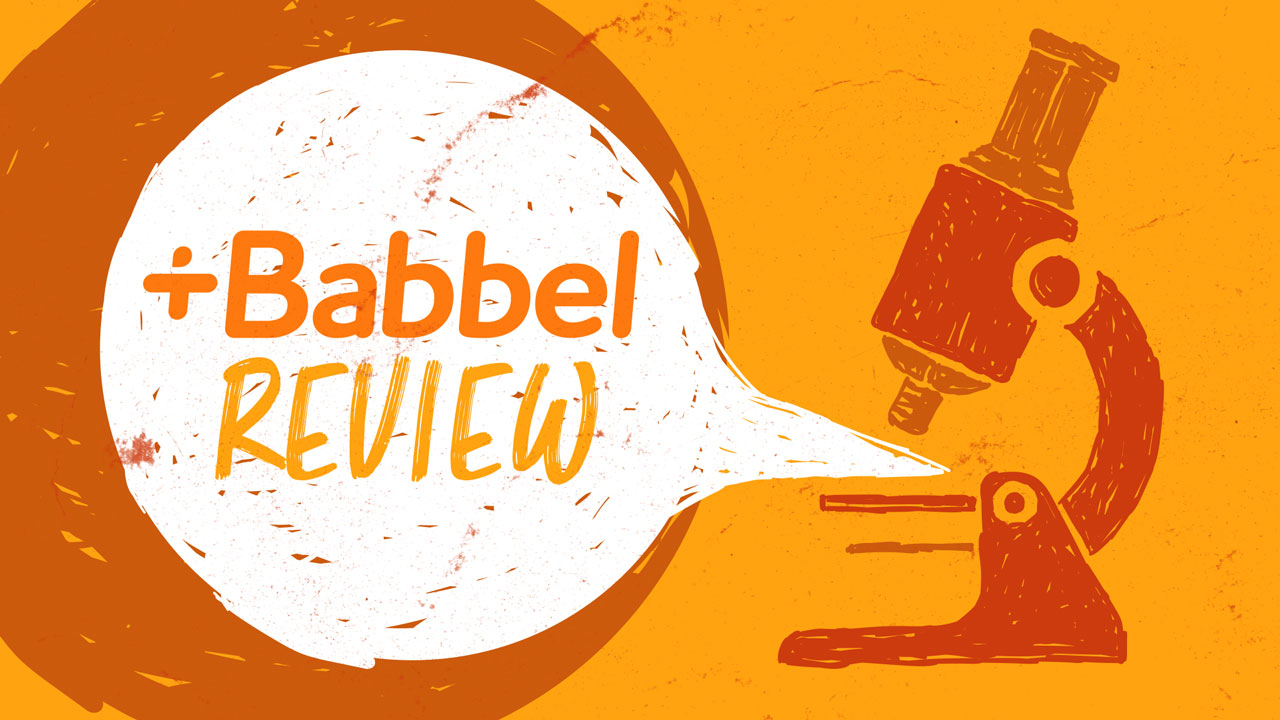
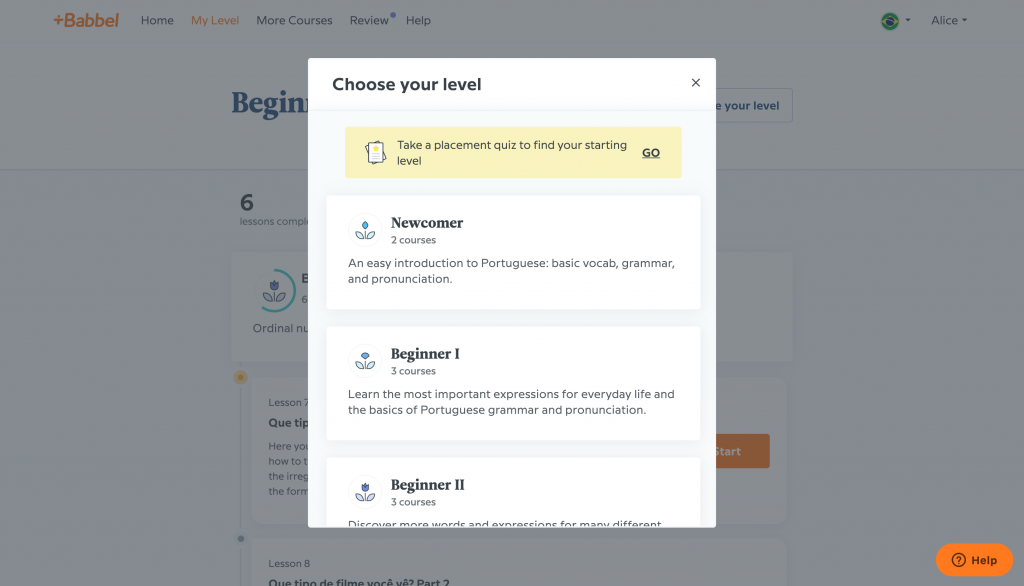
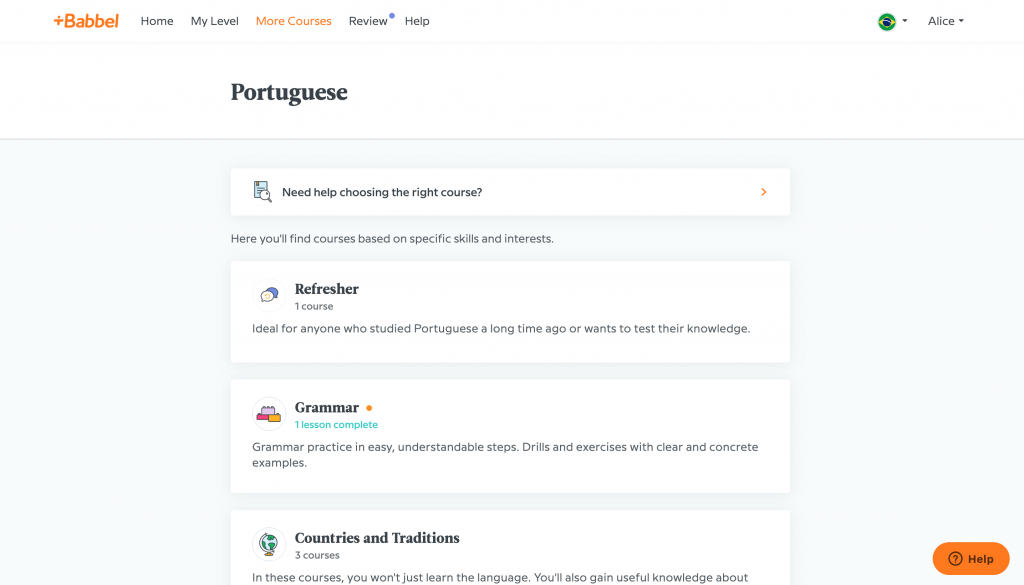
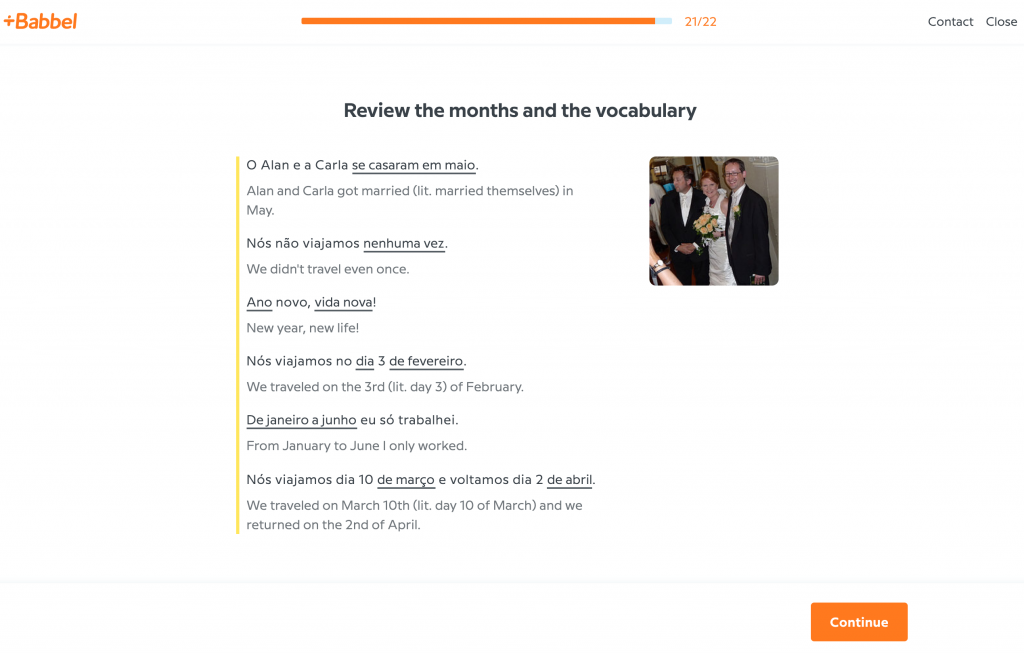
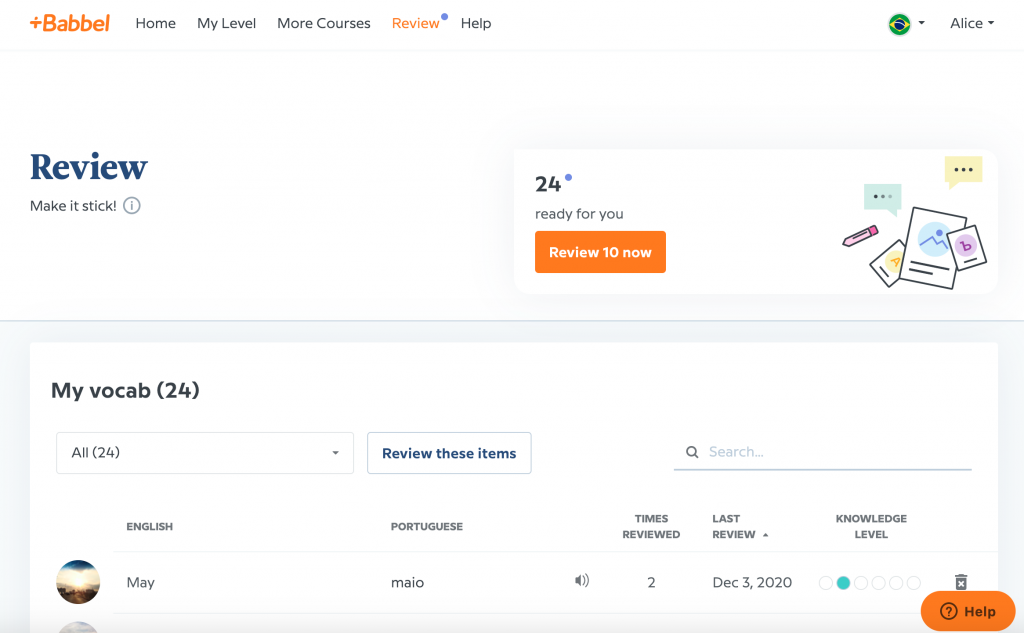
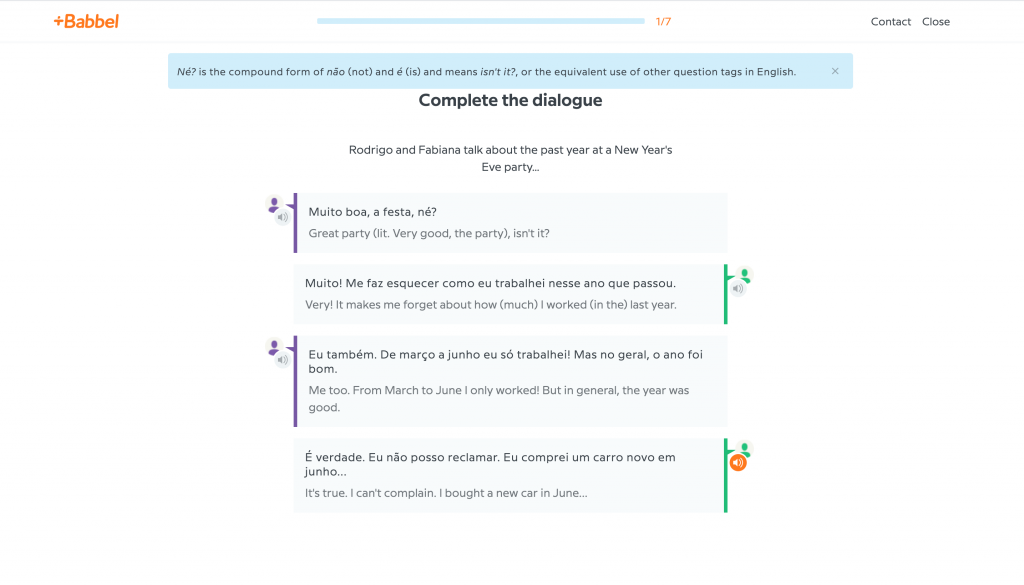
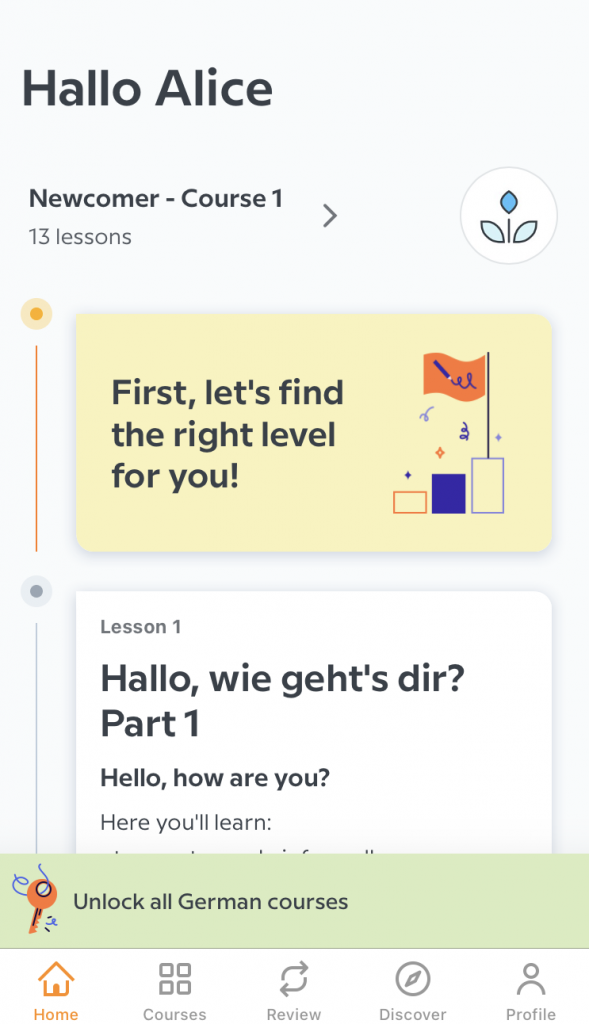
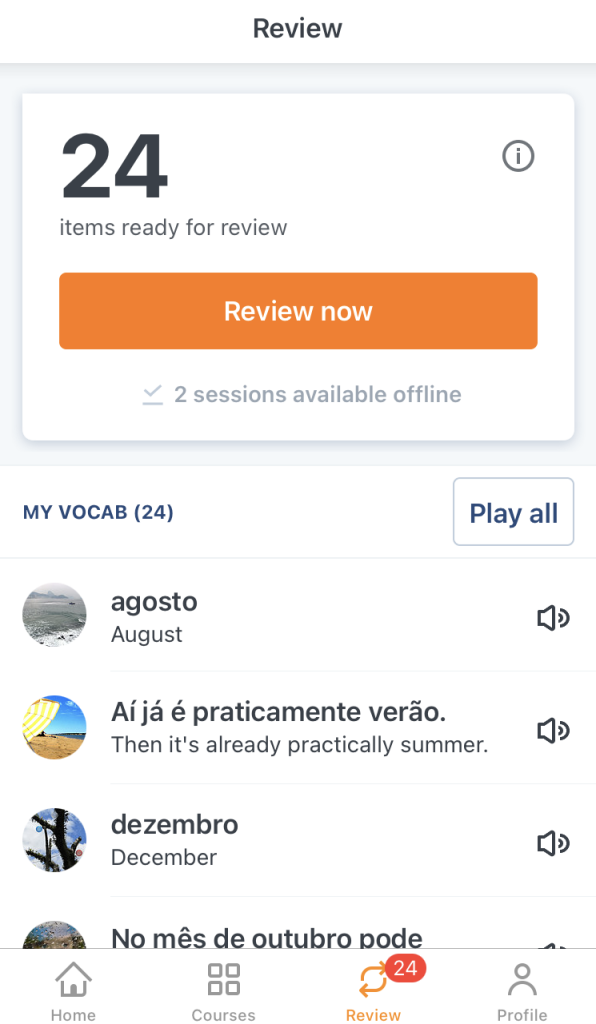
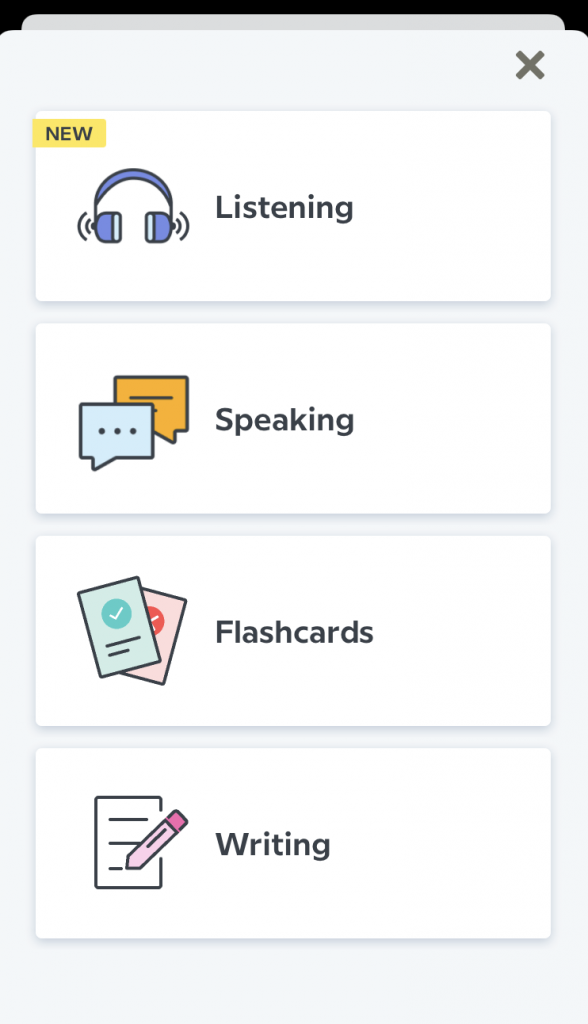
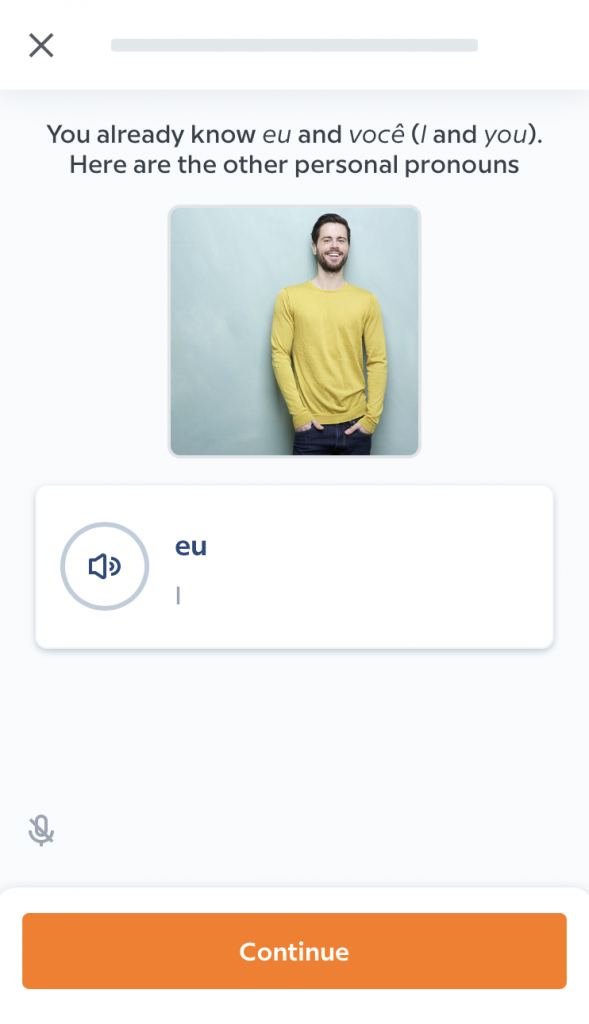

Social